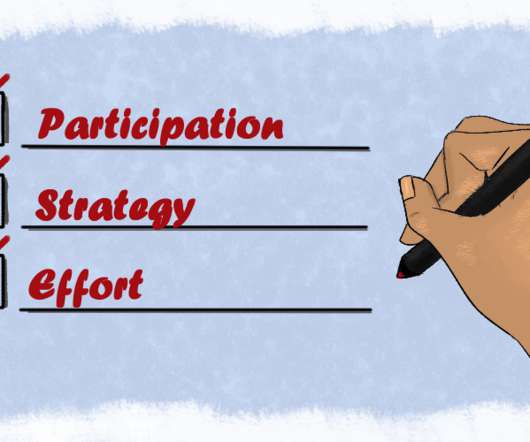Six Tips for Evaluating Your Nonprofit Training Session
Beth's Blog: How Nonprofits Can Use Social Media
FEBRUARY 18, 2014
Use Learning Theory. I have written a lot about how it is important to understand how the brain works, how people learn by using learning theories to guide the design of your workshops. to define the four levels of training evaluation. to define the four levels of training evaluation.














Let's personalize your content